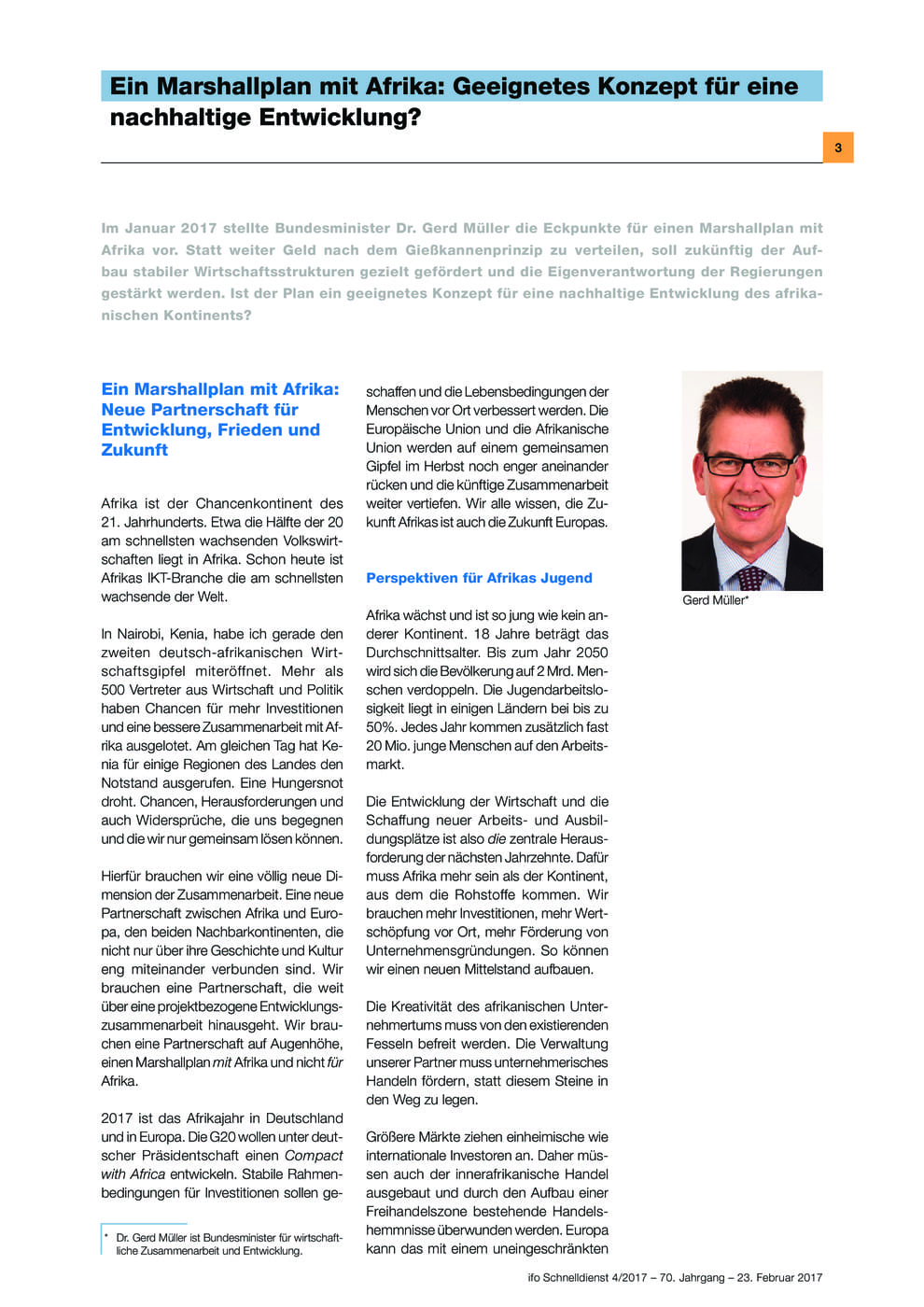“Marshall Plan with Africa”: A Suitable Concept for Sustainable Development?
ifo Institut, München, 2017
ifo Schnelldienst, 2017, 70, Nr. 04, 03-20

In January 2017, Federal Development Minister Gerd Müller presented the key points for the “Marshall Plan with Africa”. Instead of the indiscriminate distribution of aid, in future the construction of stable economic structures and governments’ individual responsibility should be promoted. In his contribution, Minister Gerd Müller presents the “Marshall Plan with Africa” and underscores the need for “partnership on an equal footing” as well as increasing mobilisation of private capital and private investment. For Andreas Freytag and Susanne Fricke, University of Jena, this Marshall plan displays a “welcome difference from the traditional development strategies” as it stresses the importance of the economy for the development process in Africa and calls for investment, youth education, integration into value chains and the creation of a middle class. What it lacks, however, is a clearly defined focus. For Franz Josef Radermacher, University of Ulm and Club of Rome, the goal of the Marshall plan is a “prosperity explosion in Africa, especially in North Africa”, that must be compatible with all sustainability requirements. According to Axel Dreher and Sarah Langlotz, University of Heidelberg, the “Marshall Plan with Africa” aims at a concentration of aid on a few reform-minded countries, which means that poorer countries will lose assistance. In addition the programme also has requirements that are to be attached to the German payments. However, detailed conditions on which concrete aid payments are dependent make little sense. Instead, Germany should move in the direction of unconditional budgetary assistance. Werner Abelshauser, University of Bielefeld, regards the Marshall plan as a model that is absolutely unsuitable to help developing countries, since unlike most of the post-war recipient countries in Western Europe, the developing countries in Africa lack the potential and economic-cultural conditions for the financing to be effective. For Matthias Wachter and Jennifer Howe, Confederation of German Industry (BDI), the Marshall plan has many positive aspects. Nevertheless, it is questionable whether it can actually improve the economic situation in Africa. For a coherent strategy, the active involvement of all federal departments would have been desirable.